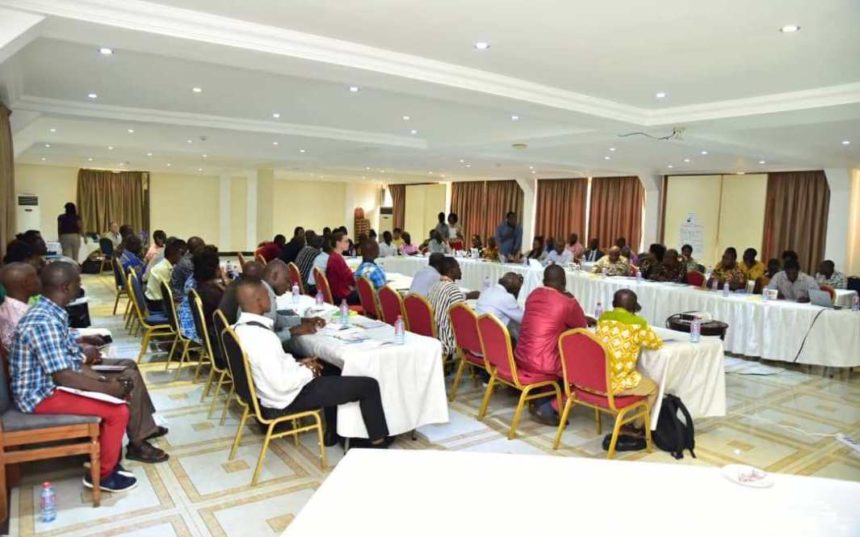Year after year, hortifresh has stayed a sell out success story, revamping farmer-processor relationship in the commercial fruit and vegetable sector, by being the biggest and longest running inclusive economic growth, food and nutrition security in West Africa.
On the 31st of July, 2019, Hortifresh, once again outdid themselves by organizing a fruit processing validation workshop, as a means of revamping farmer-processor relationship, by discussing ways farmers could increase their production, to meet the unending fruit processing capacity.
The workshop took place at the Ampomaah Hotel, East Legon, and was attended by our team reps, Peniel and Esther. The program was dissected into 2 main segments; presentation on the fruit and processing sector in Ghana and a group discussion on various solutions to solve the problem.
The workshop commenced with a solid presentation, giving us an overview on the various fruits processed in Ghana, thus, Mango, Papaya, Passion Fruit, Pineapple and Citrus.
In the presentation, it was indicated that fruit production in Ghana from 2007-2017 had had a steady increase in yield maximization with all the highlighted fruits yet acknowledging difficulties which was associated with pineapple, with a table showing production volumes.
There was a noticeable potential of processing these produce into juice, dried products and other conversionaries. This will increase revenue streams in the international and domestic markets, but the major problem was, supply of these fruits were not constant because they are seasonal especially with mango, passion fruit, papaya and citrus with the exception of pineapple and banana which are grown all year round because it is under irrigation.
It was noted that processing companies in Ghana have the capacity to collectively process about 1,500 metric tonnes of produce a day, be it dried, fruit juice or other conversionaries but are currently doing just about 1,100 metric tonnes, which is a dip in machine capacity, siting lack of supply from the fruit producers as the problem.
The problems noted to be affecting fruits in Ghana are pest and diseases attack, lack of irrigation and poor post harvest practices. The processors also complained of difficulties in meeting consistency and quality of product supply, frequent equipment breakdown, the risk of contamination and competition from imported products.
Low capacity utilization, availability of packaging materials, shorter shelf life (average 6 months), high utility cost (fuel pricing) for processors,maintenance plans, limited by-products processing as well as inadequate labour skills were also bigger issues for the fruit sector that deter investors.
The second segment was a group discussion based, focusing on producer-processor problems and how best it can be solved. The members were grouped into 4 teams, with Group 1 handling Raw materials, Product Shelf life and Production levels, the second team handled Access to Finance and Certification. Group 3 took care of Packaging materials and Processing Capacity whereas group 4 handled Fruit Terminals and Distribution channels.
There was a coffee and networking break in between segments and lunch served after the workshop was done. The whole program lasted for about 6 hours, within which all parties and members came to a satisfying conclusion to achieve its designated goal.


Leave a Reply